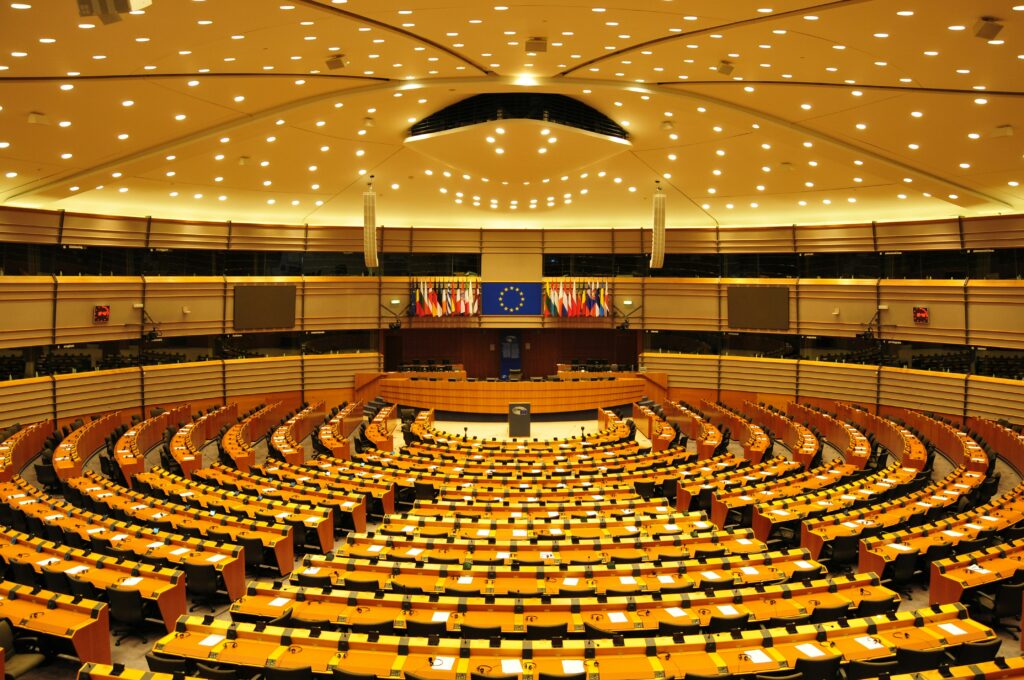Election Reflection: The Impact of the 2024 European Elections on the Textiles Industry


As the 2024 European Parliament elections reshape the political landscape, the implications for the textiles industry are profound. To explore these changes, Global Fashion Agenda’s recent Unpacking Policy Masterclass, ‘Election Reflection: The Impending Impact of the 2024 European Elections on the Textiles Industry’, brought together key industry and political figures to discuss the new dynamics.
Insights from Pascale Moreau, Founder and Managing Director of Ohana Public Affairs; Tim McPhie, Spokesperson for Climate Action and Energy at the European Commission; Rasmus Nordqvist, Danish Member of the European Parliament; and moderator María Luisa Martínez Díez, Public Affairs Director at Global Fashion Agenda, helped dissect the priorities and new policy alliances shaping the next five years of EU textiles regulation.

Several significant points emerged, particularly regarding the evolving EU political climate and the future of the European Green Deal. Ursula von der Leyen’s re-election as European Commission President signals continued commitment to the Green Deal, but new political alliances (beyond EPP, S&D, and Renew) will be essential to pass critical legislation. The new College of Commissioners, featuring for the first time portfolios such as dedicated ones for Oceans and Fisheries, is expected to further shape this landscape, particularly with growing concerns over microplastics linked to textile production and the recently announced European Water Resilience Strategy.
A crucial topic discussed was the urgent need to prioritise climate action within the textiles industry. As MEP Rasmus Nordqvist stated, “There is no room for an industry of the past,” emphasising the need to move beyond unsustainable practices that have historically plagued the sector. The textile industry plays a pivotal role in the EU’s sustainability agenda and emission reduction targets, making alignment with climate goals essential for future progress.
Tim McPhie, Spokesperson at the Commission, remarked, the new Commission has made increasing the competitiveness of the EU industry central to its mandate, aiming to ensure the region remains a global player. The equation has now shifted: whereas climate action was previously the ultimate goal, with competitiveness and job creation as secondary factors, the new approach places industry competitiveness and job creation at the forefront, with climate action increasingly subject to these priorities. This marks a significant change from earlier strategies, where environmental concerns took precedence over economic considerations.
The masterclass underscored the importance of harmonising the implementation of recently passed legislation, including key measures such as the Ecodesign for Sustainable Products Regulation, the Due Diligence Directive, and the Corporate Sustainability Reporting Directive. Regular dialogues between the industry and Commissioners will be necessary, especially as emerging issues like chemical safety, microplastics, and water management gain prominence. As McPhie highlighted that the Commissioners will prioritise meetings with the industry to facilitate smooth implementation, signalling that the European Commission is open to ongoing collaboration.
Another critical point discussed was the role of traceability for companies to ensure compliance and market access. Without transparent data collection and reporting, it will be challenging for companies to demonstrate adherence to EU standards, potentially leading to penalties, restricted market access, or product recalls.
Finally, the masterclass highlighted the need to monitor the global impact and trade considerations of EU legislation. As the EU advances its sustainability agenda, ensuring that its standards are supported beyond its borders will be crucial to maintaining a level playing field and promoting global environmental standards.
As we await the hearings of the Commissioners-designate and their assessments of the nominees’ suitability between 4 and 12 November, the coming months will be crucial in shaping how the EU’s sustainability goals are turned into actionable policies.
Geopolitical issues, including migration, security, and reducing strategic dependencies, are expected to take priority in the EU’s agenda. The increased representation of far-right parties in the European Parliament may impact ongoing legislative processes, such as the Waste Framework Directive or the Textile Labelling Regulation, signalling a shift toward deregulation and practical measures for businesses, with less emphasis on climate action.
As a result, and in light of recommendations from Mario Draghi’s report on the competitiveness of the EU Industry, Ursula von der Leyen reworked her priorities to focus on economic competitiveness and job creation. Her Political Guidelines for 2024-2029 reflect this adjustment, where competitiveness will be central, and emphasising initiatives like the Clean Industrial Deal, the European Water Resilience Strategy, and the Circular Economy Act.
This shift may result in a reprioritisation of ongoing Green Deal-related files, potentially leading to less ambitious compromises and requirements. The processing of these files may be delayed or deprioritised, making it harder to push through critical environmental legislation. However, businesses may find new opportunities in initiatives like the Clean Industrial Deal, which emphasises sustainable competitiveness and protection from non-EU competition. Increased funding is also expected, alongside customs revisions to safeguard EU-based companies from third-country competition.
While the focus shifts to economic growth, the industry must also manage harmonised implementation of key legislation adopted in the previous mandate. The Ecodesign Regulation and Forced Labour Regulation, among others, will require coordinated adoption across Member States, despite varying timelines. This poses challenges for businesses adapting to diverse requirements but also presents opportunities for dialogue with the European Commission.
Global companies must ensure that their suppliers and manufacturers stay informed about these regulatory developments, particularly in terms of data traceability and compliance with international standards. Knowledge-sharing between stakeholders will be vital to navigating these challenges and ensuring the industry remains aligned with both EU and global expectations.
The path ahead is complex but filled with potential. Collaboration between policymakers, industry leaders, and global suppliers will be key to ensuring the sector’s long-term sustainability while seizing new business opportunities within the framework of the EU’s shifting priorities.